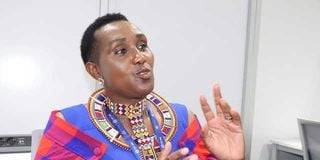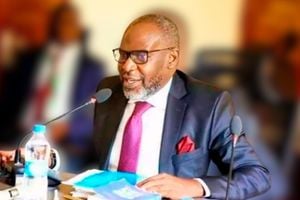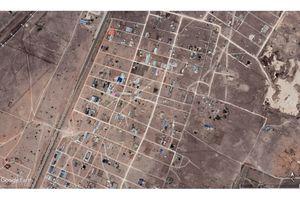Climate Activist takes plight of pastoralists to COP28

Jacqueline Koin, a Maasai climate and gender activist at COP28 in Dubai in December, 2023.
Dressed in a typical Maasai regalia comprising blue, red and maroon colours, African necklaces and bracelets made of colourful beads, Jacqueline Koin, a climate and gender advocate from Kajiado County, walked up the stage at COP 28 conference in Dubai with one message — that climate change is taking a toll on indigenous women in her hometurf, and in the entire Horn of Africa region.
She explained how climate change impacted the social welfare of women and girls in her community, their health, diets, education, and nutrition, among many other things.
“This COP is happening right after a distressing four-year-long drought in the Horn of Africa that just ended with devastating floods,” she told delegates at COP28.
“During this period, my community members, who are pastoralists, lost their livestock, and in retaliation, as we convene here in Dubai today, school-going girls are being auctioned in the name of early marriages in exchange for cattle and goats, as a way of replenishing the lost stock.”
Ms Koin is one of the 200 representatives of frontline communities and members of vulnerable and disadvantaged groups who the COP presidency invited to share how their health and lives are being impacted by climate change.
The UN Climate Change Conferences (COP) occurs yearly under the United Nations Framework Convention on Climate Change (UNFCCC). They are the world’s only multilateral discussion fora on climate change, with almost complete membership of every country. “As the Maasai community, we live a nomadic lifestyle to adapt to climate change,” she said.
“And so when women move from their homes in search of greener pastures elsewhere, they go along with their children, which greatly interferes with normal schooling programmes. Some of the women moving up the mountains are pregnant. When time comes for delivery, they have to do it on their own, leading to infant deaths, maternal deaths, and sometimes development of complications such as fistula due to lack of medical attention. All these are impacts of climate change, which must be discussed during this COP process.”
Through the COP process, governments come together to measure progress and negotiate the best ways to address climate change and its impacts on different communities while considering each other’s circumstances.
The 28th session of the COP for the year 2023 began on a high note, with delegates agreeing to make the Loss and Damage Fund operational, with developed countries pledging to commit over $400 million so far.
This facility, which is domiciled at the World Bank, will help compensate vulnerable communities in coping with losses and damage caused by climate change by ensuring that vital infrastructure can be rebuilt or replaced with more sustainable versions.
However, towards the end of the first week of negotiations, there were concerns that the process needed to be faster, especially on financing vulnerable communities to adapt to climate change, which is a priority for parties from the Global South.
“After a strong start, climate negotiations in Dubai are in danger of falling off track,” said Ms Ebony Holland, the policy lead for Nature and Climate for the International Institute for Environment and Development, a policy and action research organisation.
“Pledges of finance during the Adaptation Finance Pledging Event to support countries adapt to climate change are barely half of what they should be, and there’s concern that some of these funds could be pledges to the new Loss and Damage Fund that are being double-counted,” said Holland.
The biggest setback for pastoralist communities, according to Ms Koin, is a need for more water resources and pasture whenever there is drought, and there is a need for money for adaptation.
“We need money to construct water dams, drill boreholes and even construct sand dams along seasonal rivers; we need money to plant drought-tolerant grasses and other forms of pastures, and we need money to fatten already emaciated animals due to droughts,” she said.
Recently, parties from the Global North have been accused in the previous COPs of prioritising mitigation finance over adaptation, which is the main priority for Africa and other vulnerable nations.
“We are not surprised that adaptation finance continues to attract contemptuous disregard by the parties,” said Dr Mithika Mwenda, the executive director of Pan African Climate Justice Alliance.
“All reports confirm this trend that adaptation is becoming a peripheral priority for the Global North parties at COP 28,” he added, noting that it is a sad day for Africa and vulnerable communities worldwide.
Similarly, protests were witnessed at the COP venue, within the Dubai Expo venue, with protesters urging rich countries to keep their promise and pay for polluting the world, causing climate change.
“If all the declarations during the presidential high-level session will not trickle down to the people, then COP28 will not have fulfilled its mandate,” said Koin.



